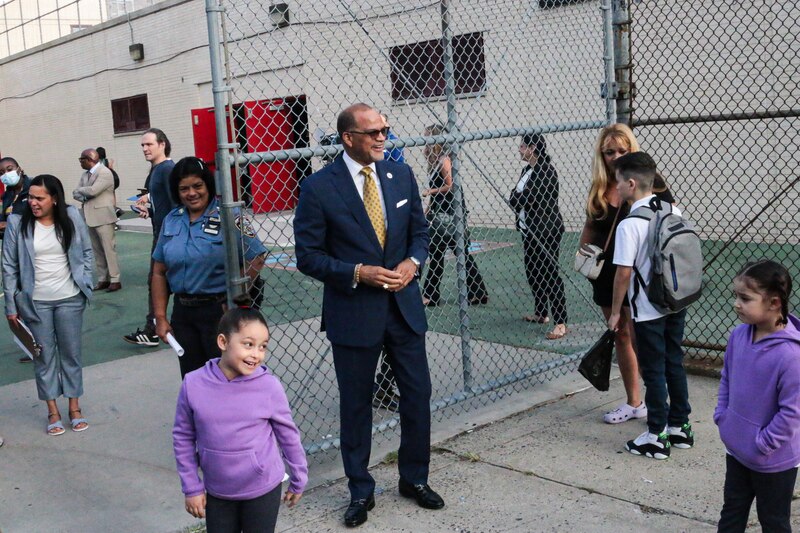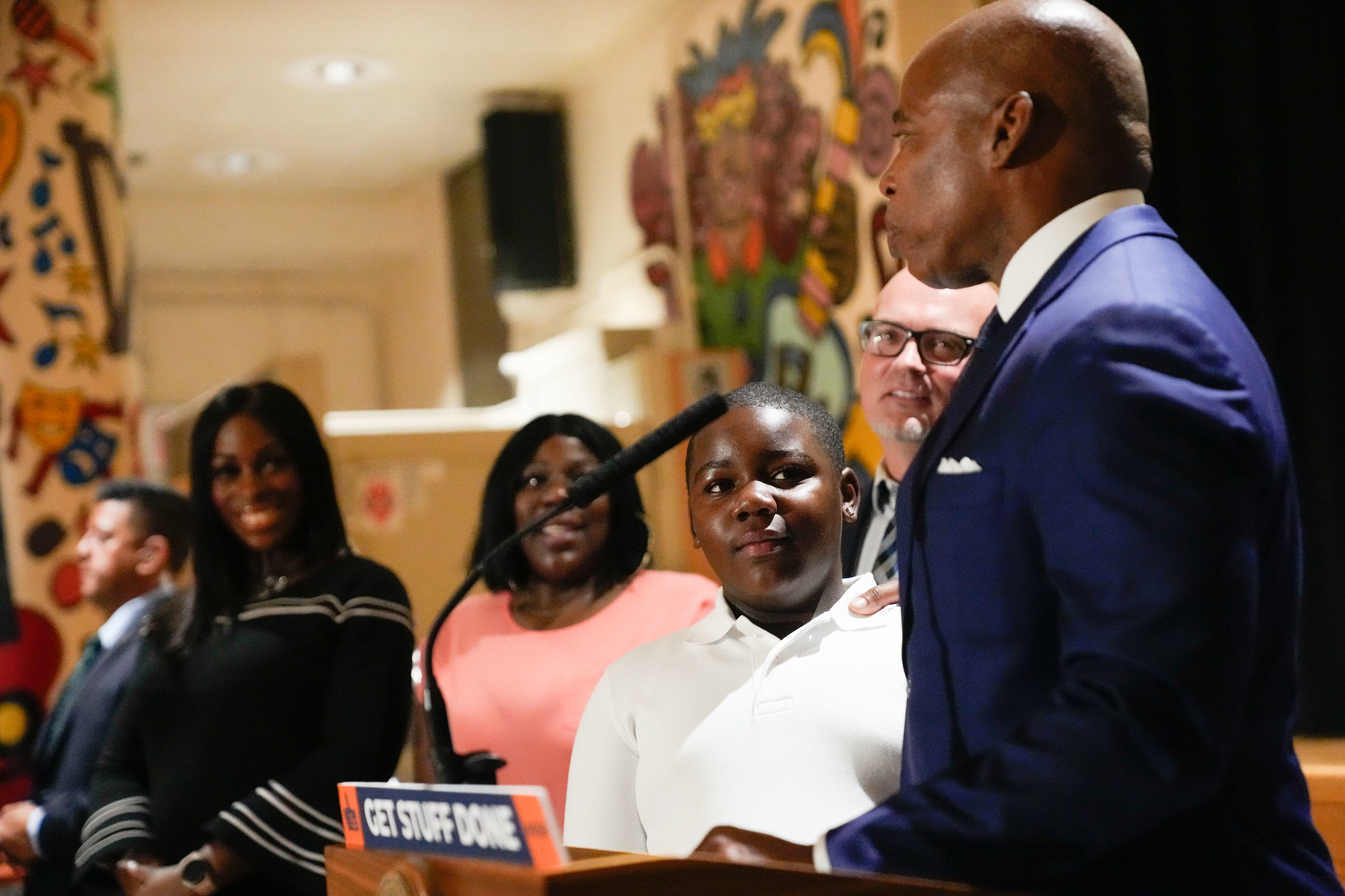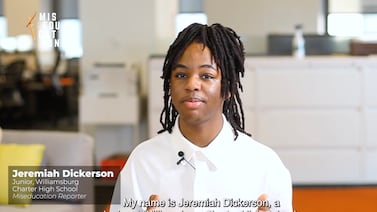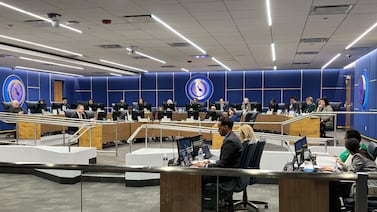On his inaugural first day of school since taking office, Mayor Eric Adams and his schools chief David Banks made no secret of their top priority: improving literacy instruction in a system where the majority of third through eighth graders are not considered proficient readers.
They pointed to new efforts requiring that elementary schools use reading curriculums rooted in phonics and highlighted plans to ramp up screening for reading challenges including dyslexia.
“You’re going to see a dramatic change over the next several years in reading scores and our approach to the teaching of reading,” Banks said Thursday morning.
The backdrop of their joint appearance was the Bronx’s P.S. 161, one of two pilot schools that will offer intensive literacy instruction and which Banks said will serve as a “beacon and a blueprint” for other schools the city plans to launch for struggling readers.
Lastassia Hargrove will be watching closely to see how her youngest son Carter Miller, a third grader at P.S. 161, benefits from the program.
She spotted Carter’s reading challenges early on, worried that he wasn’t interested in books, and he didn’t remember details from those she repeatedly read aloud to him. Hargrove said she struggled to get her son connected to services and that he’s missed benchmarks.
On Carter’s first day of third grade, Adams put his arms around him and his mother and vowed to prevent students like him from slipping through the cracks.
“There are so many like him that have been left behind,” Adams told reporters assembled in the auditorium of P.S. 161. “You are going to be the symbol of this program — this young, bright man.”
Achieving big literacy gains will undoubtedly prove challenging, as schools typically have wide latitude to pick what curriculums they use, and the process of adapting to new materials requires time and support.
Some school leaders feel uncertain about how the city plans to support them, as the administration is reducing the number of literacy coaches while expanding the number of grade levels the remaining coaches will serve. On top of that, the vast majority of schools are facing budget cuts.
Shael Polakow-Suransky, the education department’s chief academic officer during the Bloomberg administration and current president of the Bank Street College of Education, praised Banks’ focus on “investing in a research based literacy strategy.” But he also noted that districts that made curriculum changes have sometimes still struggled to move the needle.
“Selecting the right curriculum is never a silver bullet,” he wrote. “Success in improving literacy outcomes depends on capacity building that strengthens the instructional culture of the school and supports growth in teacher’s skills through regular reflection with peers and coaches.”
Disruptions stemming from the pandemic may also complicate the city’s plans. It’s unclear how students are faring academically or how far off track they might be. City officials have refused to provide assessment data from last year, and the state has not yet shared standardized test results for the city’s third through eighth graders.
But there are already some concerning indicators. Math and reading scores for 9-year-olds from the National Assessment of Educational Progress, whose test is known as “the nation’s report card,” plummeted. (NAEP scores for New York City students are expected in October.)

Some of the city’s efforts are starting relatively small: Although the mayor and chancellor touted the pilot program to improve literacy instruction at P.S. 161 and Manhattan’s P.S. 125, they are each serving just over 30 students in the first year, Banks said. Some observers also expressed concern about launching schools geared toward students with dyslexia or other reading challenges, arguing that all schools should be able to reach those students.
At P.S. 161, the pilot will include a second and third grade classroom staffed by teachers who have received intensive training to reach struggling readers, according to the Literacy Academy Collective, an organization founded by a handful of parents whose children were not getting the reading support they needed in the city’s public schools.
Banks acknowledged the parents’ role in building the program on Thursday, a moment that they said was the culmination of years of advocacy.
“For three and a half years, we’ve been saying this has to change,” said Emily Hellstrom, one of the organization’s parent co-founders. Watching the chancellor explain that “we have to teach our children to read and this is the way to do it — it’s indescribable.”
For her part, Hargrove is excited that her son will be part of the literacy pilot. She hopes that by the end of the year, Carter will be able to confidently translate the thoughts swirling in his head into written sentences.
“I think it’s gonna be a great program,” she said.






